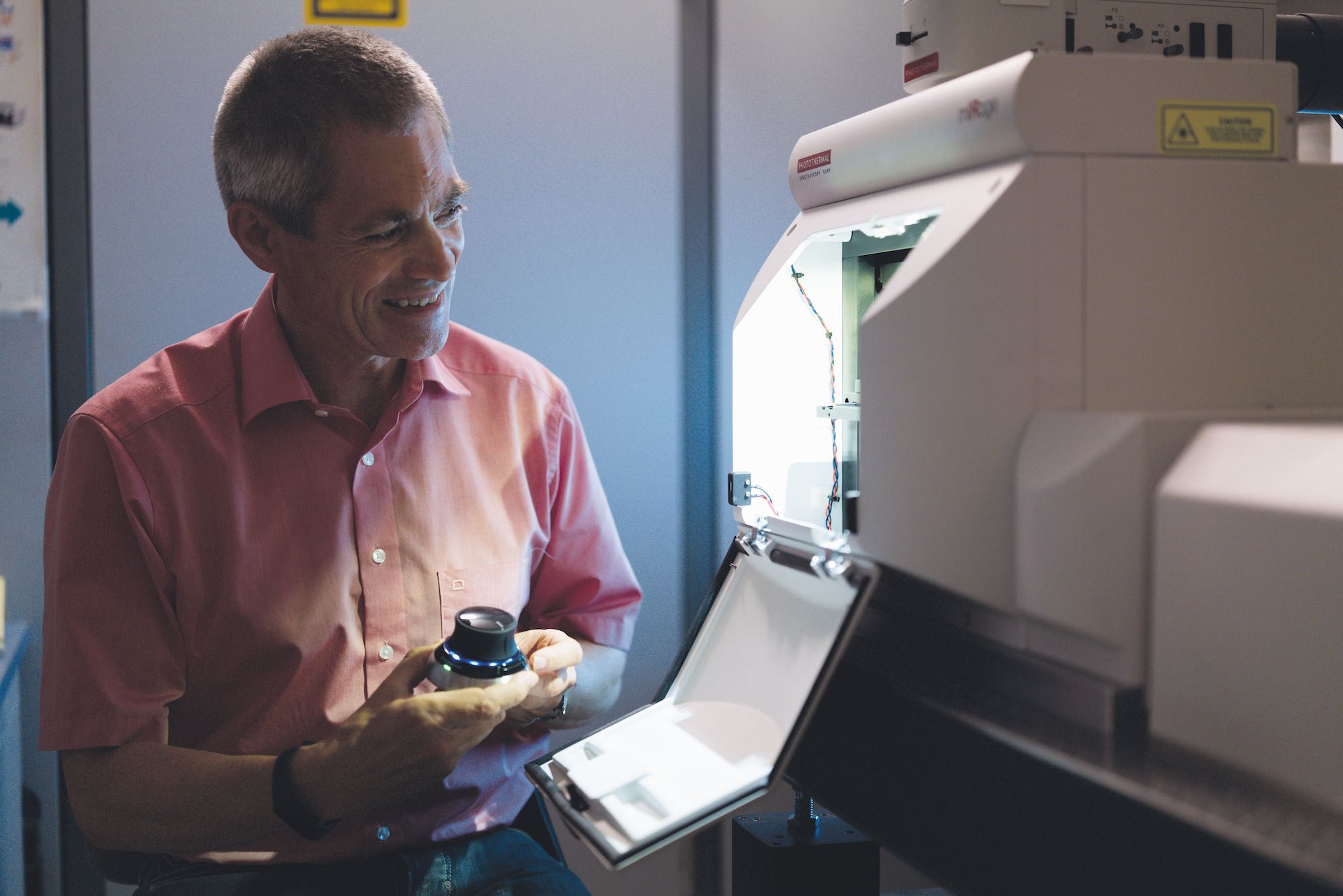- Home
- Research
- Spectroscopy and Imaging
- Research results
- Initiative “IR4future”
Initiative “IR4future”

11.01.2023
Infrared spectroscopy enables a wide range of applications in medical diagnostics and analytics. However, the method is currently be- ing used and taught mainly as a routine measurement procedure – methodological further development has stalled. With participation of scientists from Leibniz IPHT, researchers and industrial partners from German-speaking countries have launched the “IR4future” initiative. The aim is to intensify research activities in the field of IR spectroscopy and to develop application potentials.
Measuring blood glucose without pricking, detecting lung and kidney diseases or diabetes at an early stage based on the air you breathe, or determining the chemical composition of tissue to detect pathological changes: IR spectroscopy provides a wealth of information, especially for simultaneous determination of chemical and physical parameters, and enables analyses without the use of external labels. This makes it a key technology in the field of health technologies as well as in the areas of agriculture and nutrition. Prof. Christian Huck from the Leopold-Franzens University in Innsbruck, together with his colleague Prof. Jürgen Popp from Leibniz IPHT, initiated the interdisciplinary interest group “IR4future”. Together with eleven other representatives from industry and science, they have published a position paper in which they critically analyze the current status of IR spectroscopy and show current trends. Dr. Christoph Krafft, head of the Raman and Infrared Histopathology Group from the Spectroscopy/Imaging Department at Leibniz IPHT, is one of the authors of the position paper. He warns: “The potential of IR spectroscopy is in danger of not being used. I see the danger that research institutions and equipment manufacturers in German-speaking countries will fall behind on international level.” He is not alone in his opinion: colleagues from the “Leibniz Health Technologies” Research Alliance, Freie Universität Berlin and University of Innsbruck, as well as from spectrometer and optoelectronics manufacturers in German-speaking countries have joined the appeal. Together, they call for a stronger commitment to research and development of new radiation sources, sensor technologies and detectors as well as AI-supported evaluation, especially for biomedical issues.
Appeal to politicians: Invest in the development of new methods
Public funding agencies should be encouraged to increasingly support projects for the development of methods. “There is an urgent need to secure and expand the existing potential of methodological research in the long term,” experts appeal in a jointly published position paper. “In order to be able to translate new approaches into products and services for the benefit of society, there is an essential need for suitable research and development infrastructure.” In their statement published in April 2021, the authors outline concrete proposals for solutions to enable an innovation boost. Existing competencies should be bundled and made accessible in an IR spectroscopy technology hub. It is necessary to combine IR-based methods with enabling technologies such as micro- and nanotechnologies, microfluidics and fiber technology. Deep learning approaches for the evaluation of IR spectra have to be newly or further developed.
In order to better and more efficiently develop the potential of IR spectroscopy as a whole, it is essential to improve the framework conditions, especially in the continuous qualification of scientific and technical personnel at universities and research institutions. “This is crucial for progress in research and for its economic connectivity,” the researchers emphasize.
